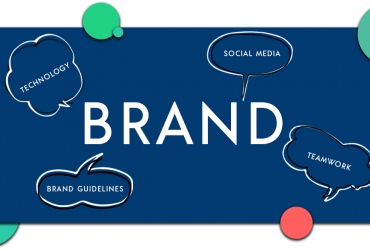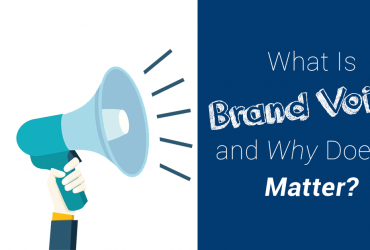Why Your Why Needs to Be Part of Your Marketing
Browsing my Twitter feed the other day, I came across a tweet that gave me pause. Here it is:
your why really isn’t that important to your customer, what your business/product/service can do for them is much more important
— Claire Boyles (@ClaireBoyles) July 10, 2017
I responded:
True except I would say a strong why leads to stronger product/service/benefit for the customer + greater motivation for your team
— Rallio (@rallioHQ) July 11, 2017
And then received:
not necessarily. The what – what value/end result the product/service delivers for the customer can be entirely independent of why
— Claire Boyles (@ClaireBoyles) July 11, 2017
Claire Boyles went on to tweet: “An individual’s ‘why’ is not always the same as the value/result the customer wants from that purchase. I don’t care why Bill Gates created Microsoft operating systems, I just care that it does what I need.
“I don’t care why Jobs created the iphone [sic], I care that I have a smartphone. I care that I can create documents, that I can email, that I can design on my computer, I care that I have a pocket computer online.
“Why anyone invented them is irrelevant to my buying choice – do I need something to create documents? Then I’ll consider buying Word, do I need to know why someone was inspired to create a word processor on a computer? Nope. Do I care that it works? Absolutely.”
I can appreciate the sentiment, that ultimately the customer wants to buy something that does the thing it promises to do. However, what gave me pause is the idea that the “why” is independent of the benefit provided to customers by a product or service.
Your Why Must Be Inextricably Part of Your Product or Service
The tweet included mention of Steve Jobs. That’s a perfect example to use as I dive into why the why needs to be integrated throughout a company, not viewed as separate from the products/services. It’s true that customers don’t ponder why Steve Jobs started his company when they’re standing in line to purchase the latest iPhone. However, they most certainly have been influenced by that why as they’re making buying decisions.
It’s not about an entrepreneur blatantly telling customers, “Hey, here’s why I started my business,” but rather, subtly infusing that why into every bit of messaging, marketing and branding. That’s exactly what Jobs did by taking products that were basically already on the market and reinventing them in ways that made people gravitate to the Apple brand.
It’s about developing a why that matters more to the customer than you as the entrepreneur. In that sense, the why becomes the very thing that puts customers’ needs first, and the idea that “your why isn’t really that important to the customer” doesn’t hold true.
[bctt tweet=”Successful entrepreneurs let their #why evolve from being me-focused to being customer-focused.” username=”rallioHQ”]
Your Why Has to Be Bigger Than You
Oftentimes, people start a business for me-centric reasons: For example, they want to make more money, they want the freedom of being their own boss, they invented some fantastic thing they think everyone should buy, or they otherwise want some kind of personal gain. Those are not very good “whys” because they put the entrepreneur first and ignore what the customer needs or wants.
To be successful as an entrepreneur, your “why” must evolve from being me-focused to being customer-focused. It must move beyond ego and become a purpose serving some kind of greater good, something bigger than us.
So let’s put this in Steve Jobs terms. Let’s say his why was simply that he loved creating cool techie things. That’s a me-centric why, and of course, that’s not what Jobs did. Rather, he had a “bigger than me” why that puts customers before anyone else. As this Harvard Business Review article points out, “Apple existed to ‘delight customers’ first — benefits to other stakeholders, including shareholders, followed.”
Jobs did more than just delight customers, too. He generated an emotional connection to the brand that causes people to crave the next Apple product. That connection happened largely as a result of the “Think Different” campaign.
In this Forbes article, author Robert Hof writes about Bill Cleary, who worked for Jobs at Apple from 1981 to 1985 and later worked with both Apple and NeXT at CKS Partners. Here’s what Cleary had to say: “When Jobs returned to Apple, he instituted the Think Different ad campaign. Nobody else had the sheer chutzpah to say that people like Gandhi and Einstein would be using Apple Macintoshes if they were alive today.”
“Here’s to the crazy ones, the misfits, the rebels, the troublemakers, the round pegs in the square holes… the ones who see things differently — they’re not fond of rules … You can quote them, disagree with them, glorify or vilify them, but the only thing you can’t do is ignore them because they change things … they push the human race forward, and while some may see them as the crazy ones, we see genius, because the ones who are crazy enough to think that they can change the world, are the ones who do.” — Steve Jobs
Nowhere in that statement does Steve Jobs talk about iPads, iPhones or MacBooks or the benefits those products provide. But when you see an Apple product, you instantly feel the emotional connection to the brand. You feel the why, without it even being spoken in words.
As I tweeted:
You might not care about the why or purpose, but if Jobs (for ex) didn’t, if he didn’t infuse his why into the brand image…
— Rallio (@rallioHQ) July 11, 2017
then it would just be another computer, just another company, just another place to work and no reason for brand loyalty.
— Rallio (@rallioHQ) July 11, 2017
Your Why Has to Be Connected to Your Company’s Values
I could go out and buy any word processing tool and still be able to type up this blog post, but I don’t want just any tool. I want the MacBook Pro I’m using because first and foremost, it’s an incredible product. It’s sleek, fast, easy to use, portable and fun.
Still, even if Microsoft created something similar, I’d turn to Apple because I’ve grown to trust and value the emotional connection I have to Apple products. I got excited to tell my tech-savvy brother about my new computer. I think the products are cutting-edge and cool. Delightful and beautiful even. And working at a tech company, naturally I want to be cutting-edge!
There’s no real way to treat the why as separate and apart from the product or service you’re providing. On the contrary, when you treat your why as an integral part of your branding, you create brand loyalty.
You build the emotional connection that makes people stand in line for your product, post about it on social media and engage with your brand. You give your brand a personality, something that every customer seeks out when they’re checking you out on social media and online.
Simply put: You create something that gets remembered.
“Marketing is about values. It’s a complicated and noisy world, and we’re not going to get a chance to get people to remember much about us. No company is. So we have to be really clear about what we want them to know about us.” — Steve Jobs
Update, July 12, 2017: My CEO, Chuck Goetschel, reminded me today of a great Simon Sinek TED Talk where he discusses the need for a why, how Apple inspires buying behavior, and why “People don’t buy what you do; they buy why you do it.” It’s the perfect complement to my discussion above, and you should watch it here if you want to start elevating your thinking:
What is your why, and how do you infuse it into your marketing? Let’s hear your thoughts.



Brilliant! Well said Karen. “People don’t buy what you do, they buy why you do it.” – Simon Sinek